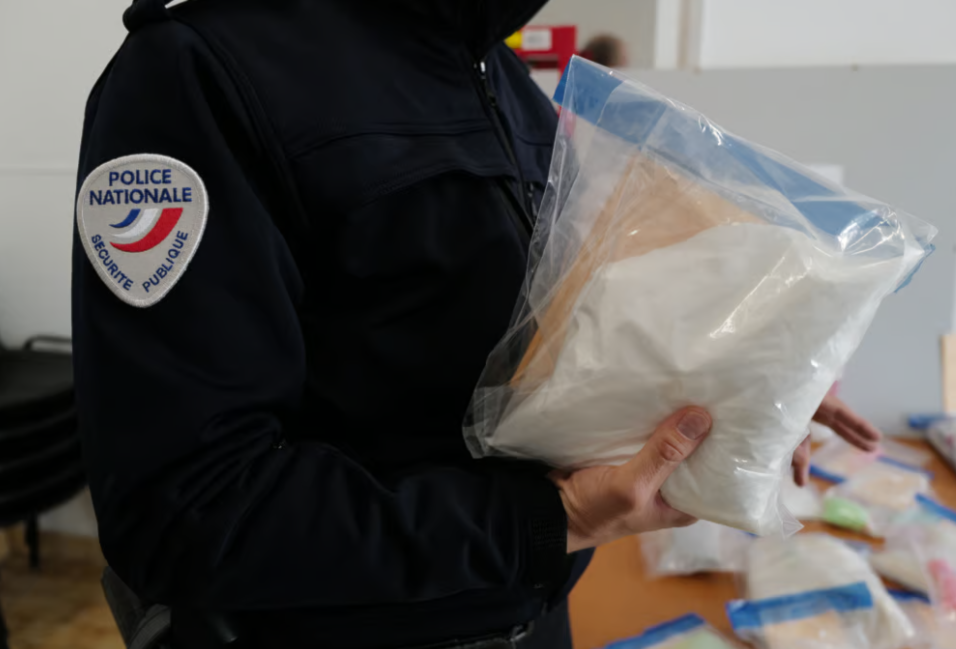Europe's drug gangs arming minors with Kalashnikovs: EU agencies
Europol and the European Monitoring Centre for Drugs and Drug Addiction (EMCDDA) have reported that Europe is now seeing drug-related violence comparable to that in Latin America.
-

A French police officer holds bags of cocaine (AFP)
European policymakers on Thursday warned that the unprecedented flow of illicit drugs in Europe has now created a drug market that drives gangs to engage in unparalleled violence against one another.
Europol and the European Monitoring Centre for Drugs and Drug Addiction (EMCDDA) conducted a press conference to provide their current overview of the European drug industry, estimated at around € 30 billion ($32 billion) annually. Cocaine imports and ecstasy exports both set records in 2022. According to the authorities, cocaine and cannabis are the most common causes of violence.
The EMCDDA's head, Alexis Goosdeel, claimed Europe is now seeing drug-related violence comparable to that of Central America, while Europol's Executive Director Catherine De Bolle revealed that "torture rooms" have been found in the EU.
“We have never seen this before. This was used in Latin America, but not in the EU,” she explained.
There has only been one publicly documented finding of so-called torture crates in Europe, near the Rotterdam port in 2020. Several persons were convicted and sentenced to jail in connection with that case.
Chris Dalby, head of the Netherlands-based consultancy World of Crime, told Politico that while it is "impossible to know" how many torture chambers exist in Europe, the case was "certainly a wake-up call about the increasing severity of gang violence in Europe."
Officials are worried about the number of minors involved as well. Gangs in Marseille are using kids as police spotters or drug dealers, resulting in minors shooting one another with Kalashnikovs. In the Antwerp and Rotterdam ports, police found dozens of minors paid to extract cocaine from cargo containers.
“Whole families are living off the income they get through young people working for criminal groups,” De Bolle stated.
Official responses have been diverse, with some politicians advocating for heavier punishments and larger security expenditures, while others say that drug prohibition is ineffective.
Belgium has been more conventional, concentrating on improving port security and increasing partnerships with the business sector through the newly formed European Ports Alliance.
Belgian Interior Minister Annelies Verlinden visited Bolivia in February and signed a joint commitment with Latin American countries "to effectively address all aspects of the global drug issue" during the next five years.
EMCDDA data indicate that cities such as Brussels, Amsterdam, Lisbon, and Tarragona have some of the highest cocaine consumption rates per capita on the planet.
“It’s not time to launch a fight against consumers. It’s a fight in order to protect our citizens,” Goosdeel stated, emphasizing that drug users should not be punished like criminals.

 3 Min Read
3 Min Read








